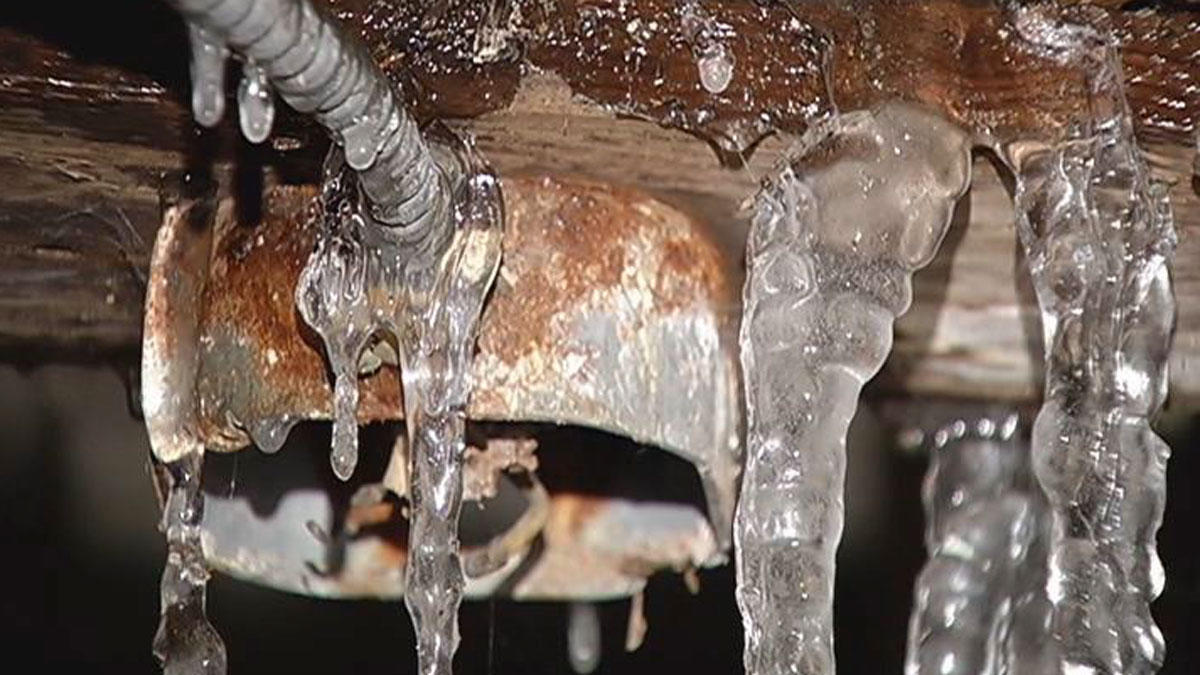How to Prevent Frozen Pipes in Winter: Professional Advice
How to Prevent Frozen Pipes in Winter: Professional Advice
Blog Article
Do you find yourself in search of guidance on Prevent Frozen Pipes ?

Cold weather can damage your pipes, specifically by freezing pipelines. Here's how to avoid it from occurring and what to do if it does.
Intro
As temperature levels decline, the threat of frozen pipes increases, possibly resulting in expensive repairs and water damage. Comprehending just how to prevent frozen pipes is critical for homeowners in chilly climates.
Avoidance Tips
Shielding susceptible pipes
Wrap pipes in insulation sleeves or utilize warm tape to secure them from freezing temperature levels. Concentrate on pipelines in unheated or external locations of the home.
Home heating strategies
Maintain indoor areas appropriately warmed, specifically locations with pipes. Open cabinet doors to allow cozy air to flow around pipes under sinks.
How to identify icy pipelines
Search for decreased water circulation from taps, unusual smells or noises from pipes, and noticeable frost on subjected pipes.
Long-Term Solutions
Architectural modifications
Consider rerouting pipelines away from outside walls or unheated locations. Add added insulation to attics, basements, and crawl spaces.
Updating insulation
Purchase high-quality insulation for pipelines, attics, and walls. Correct insulation assists keep consistent temperature levels and lowers the danger of icy pipelines.
Safeguarding Outside Pipes
Garden hose pipes and exterior taps
Disconnect and drain pipes yard tubes prior to winter season. Install frost-proof faucets or cover outside taps with shielded caps.
Understanding Icy Pipes
What triggers pipes to ice up?
Pipelines freeze when subjected to temperatures listed below 32 ° F (0 ° C) for extended durations. As water inside the pipes ices up, it broadens, taxing the pipe walls and possibly triggering them to break.
Threats and damages
Icy pipelines can cause supply of water disruptions, building damage, and pricey repair work. Burst pipes can flooding homes and trigger extensive structural damage.
Indicators of Frozen Piping
Identifying frozen pipes early can prevent them from bursting.
What to Do If Your Pipes Freeze
Immediate activities to take
If you presume icy pipes, keep faucets available to alleviate pressure as the ice melts. Use a hairdryer or towels soaked in hot water to thaw pipelines gradually.
Conclusion
Preventing frozen pipelines calls for positive steps and quick feedbacks. By comprehending the causes, indicators, and preventive measures, home owners can secure their plumbing during winter.
Helpful Tips to Prevent Frozen Pipes this Winter
UNDERSTANDING THE BASICS: WHY PIPES FREEZE AND WHY IT’S A PROBLEM
Water freezing inside pipes is common during the winter months, but understanding why pipes freeze, and the potential problems it can cause is crucial in preventing such incidents. This section will delve into the basics of why pipes freeze and the associated problems that may arise.
THE SCIENCE BEHIND FROZEN PIPES
When water reaches freezing temperatures, it undergoes a physical transformation and solidifies into ice. This expansion of water as it freezes is the primary reason pipes can burst. As the water inside the pipe freezes, it expands, creating immense pressure on the walls. If the pressure becomes too great, the pipe can crack or rupture, leading to leaks and water damage.
FACTORS THAT CONTRIBUTE TO PIPE FREEZING
Low Temperatures: Extremely cold weather, especially below freezing, increases the risk of pipes freezing. Uninsulated or Poorly Insulated Pipes: Pipes located in unheated areas, such as basements, crawl spaces, or attics, are more prone to freezing. Insufficient insulation or lack of insulation altogether exacerbates the problem. Exterior Wall Exposure: Pipes running along exterior walls are susceptible to freezing as they encounter colder temperatures outside. Lack of Heating or Temperature Regulation: Inadequate heating or inconsistent temperature control in your home can contribute to frozen pipes. PROBLEMS CAUSED BY FROZEN PIPES
- Pipe Bursting: As mentioned earlier, the expansion of water as it freezes can cause pipes to burst, resulting in significant water damage.
- Water Damage: When pipes burst, it can lead to flooding and water damage to your property, including walls, ceilings, flooring, and personal belongings.
- Structural Damage: Prolonged exposure to water from burst pipes can compromise the structural integrity of your home, leading to costly repairs.
- Mold and Mildew Growth: Excess moisture from water damage can create a favorable environment for mold and mildew growth, posing health risks to occupants.
- Disrupted Water Supply: Frozen pipes can also result in a complete or partial loss of water supply until the issue is resolved.
WHY CERTAIN PIPES ARE MORE PRONE TO FREEZING
- Location: Pipes located in unheated or poorly insulated areas, such as basements, crawl spaces, attics, or exterior walls, are at higher risk of freezing.
- Exterior Pipes: Outdoor pipes, such as those used for irrigation or exposed plumbing, are particularly vulnerable to freezing as they are directly exposed to the elements.
- Supply Lines: Pipes that carry water from the main water supply into your home, including the main water line, are critical to protect as freezing in these lines can affect your entire plumbing system.
- Underground Pipes: Pipes buried underground, such as those connected to sprinkler systems or outdoor faucets, can be susceptible to freezing if not properly insulated.
https://busybusy.com/blog/helpful-tips-to-prevent-frozen-pipes-this-winter/

I discovered that page about How to Prevent Your Pipes From Freezing when doing a lookup on the internet. Sharing is nice. Helping people is fun. We appreciate your readership.
Call Us Now Report this page